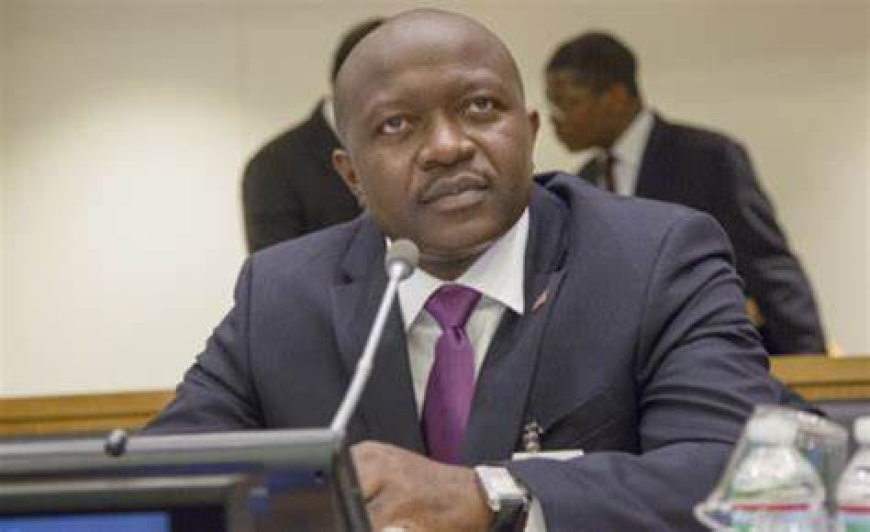Finance Minister Trumpet Fiscal Discipline to Achieve Long-Term Development Priorities amid Donor’s Fatigue Challenges

Monrovia, Liberia: Finance and Development Planning Minister Augustine Kpehe Ngafuan has emphasized the urgent need for fiscal discipline in Liberia’s economic trajectory if the nation must achieve its long-term development priorities.
Minister Ngafuan underscores the government’s commitment to economic sustainability, revenue generation, and institutional reforms as critical factors that shape Liberia’s future.
Liberia's economy has demonstrated resilience, achieving a growth rate of 4.8% in 2024. This expansion has been primarily driven by robust performances in agriculture and fisheries, with notable increases in the production of domestic rice, rubber, and cassava.
Minister Ngafuan highlighted the importance of agriculture as the backbone of economic diversification, aligning Liberia’s first president, Joseph Jenkins Roberts’ vision of self-reliance.
"Our agricultural sector has remained a pillar of national stability. By investing in domestic food production, we reduce dependence on imports and create employment opportunities for thousands of Liberians,” he stated.
The minister underscored the government's efforts in maintaining economic stability through sound monetary policies. The transition from an exchange rate-targeting framework to an interest rate-based monetary policy has enhanced liquidity management and stabilized the Liberian dollar.
Inflation, a critical factor affecting everyday Liberians, has been successfully contained within single digits, decreasing to 6.8% in the third quarter of 2024 from 7.4% in the second quarter.
"Economic stability is not just about numbers—it’s about ensuring that the purchasing power of our people remains strong. Our policies are designed to protect Liberians from economic shocks and inflationary pressures,” Minister Ngafuan asserted.
Recognizing the financial challenges facing the nation, Liberia has secured a 40-month Extended Credit Facility (ECF) arrangement with the International Monetary Fund (IMF), amounting to approximately US$210 million.
This support aligns with the government’s Economic Reform Agenda (ARREST), which focuses on rationalizing public spending, mobilizing domestic revenue, and enhancing financial stability.
Minister Ngafuan stressed the importance of accountability and transparency in fiscal management, stating, "We are committed to ensuring that every dollar is spent efficiently to benefit the Liberian people. The legacy of JJ Roberts teaches us that economic governance must be handled with integrity and foresight.”
The Minister also highlighted progress in private sector development, noting that credit to the private sector increased to 11.0% of GDP in 2024.
Through the Liberia Investment Finance and Trade (LIFT) initiative, supported by a $6 million World Bank Line of Credit, micro, small, and medium enterprises (MSMEs) have begun receiving financing to spur job creation.
"Empowering our entrepreneurs is a priority. The private sector must be the engine of growth, and we are committed to providing the necessary financial support for businesses to thrive,” Minister Ngafuan stated.
Despite global economic challenges, Liberia’s banking sector has shown resilience. Total deposits surpassed L$200 billion, and post-tax profits reached L$7 billion by October 2024. The currency reform process, another major milestone, has seen $47.06 billion in new banknotes printed, with 69% already infused into circulation.
"Financial stability is the foundation of national progress. Through our ongoing banking and currency reforms, we are ensuring that Liberians have access to a reliable financial system that serves their needs,” he affirmed.
Liberia’s trade deficit has narrowed significantly, from US$134.3 million in the second quarter to US$47.9 million by October 2024. Additionally, net remittance inflows grew by 14.7%, and the Liberian dollar appreciated by 1.8%.
However, Minister Ngafuan acknowledged the ongoing challenges in foreign reserves management, emphasizing the need to increase reserves to cover at least 3.5 months of imports in the medium term.
"We must continue strengthening our external reserves to shield our economy from global shocks. A strong reserve position ensures macroeconomic stability and investor confidence," he stated.
The Minister reaffirmed the government’s stance on transparency and accountability, noting that the Central Bank has implemented cost-saving measures and addressed 55% of the recommendations from the General Auditing Commission’s Compliance Audit.
Edited: E. Geedahgar Garsuah, Sr.
What's Your Reaction?






































































